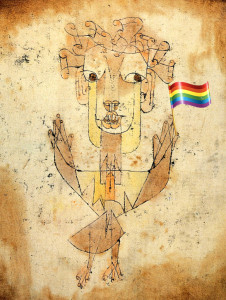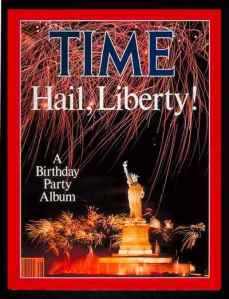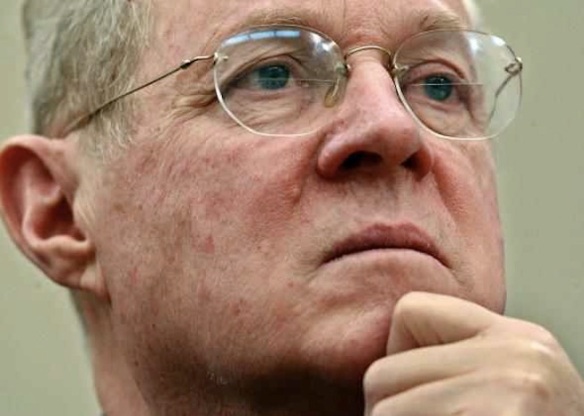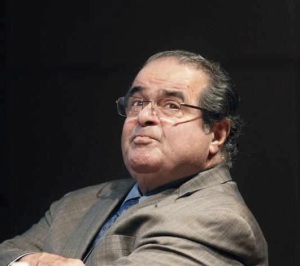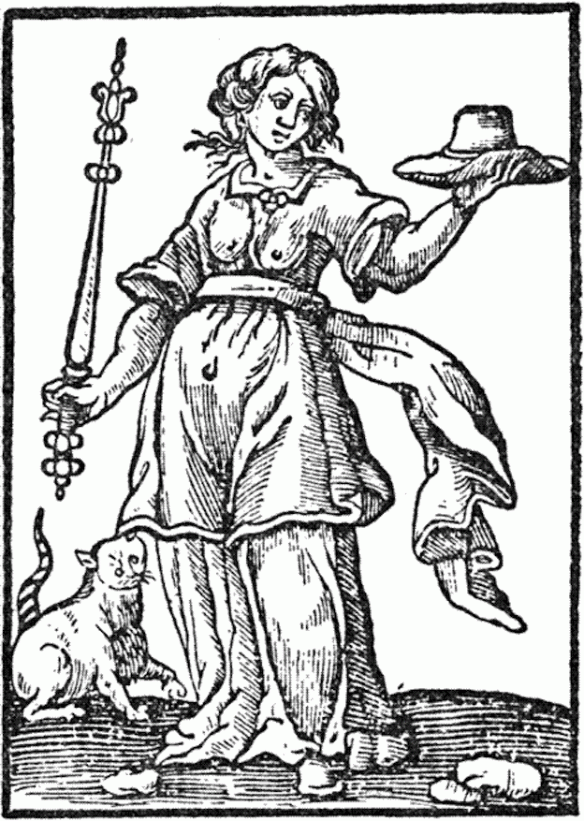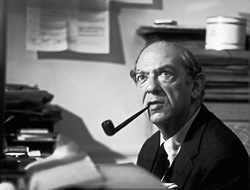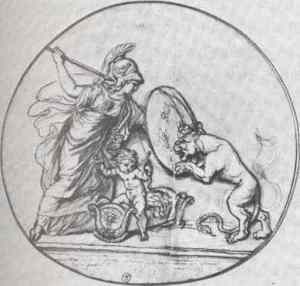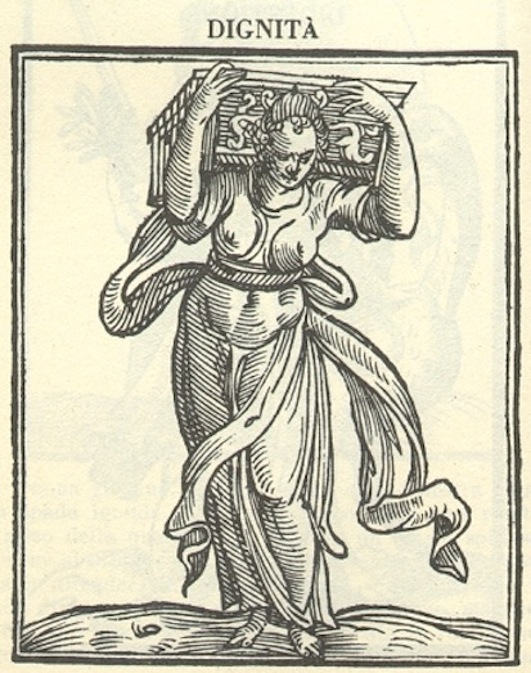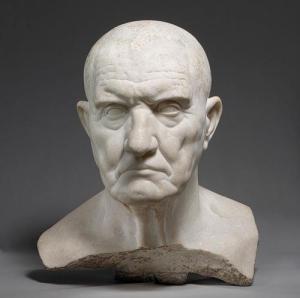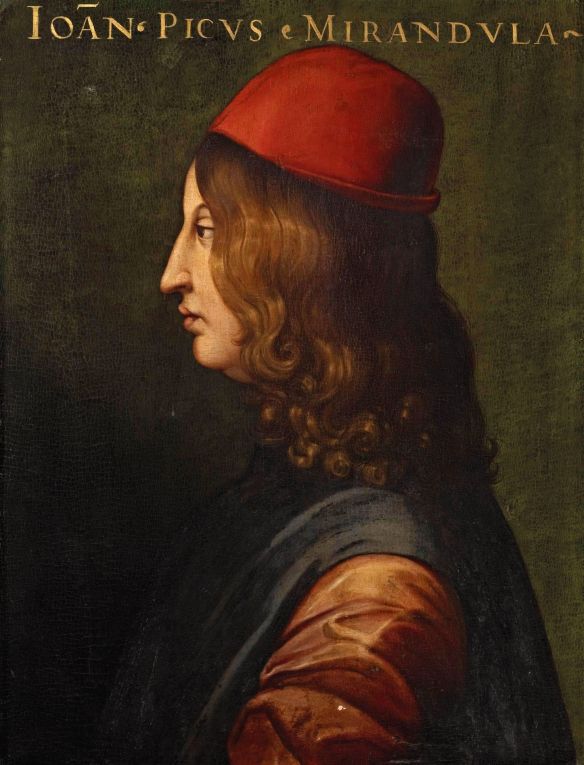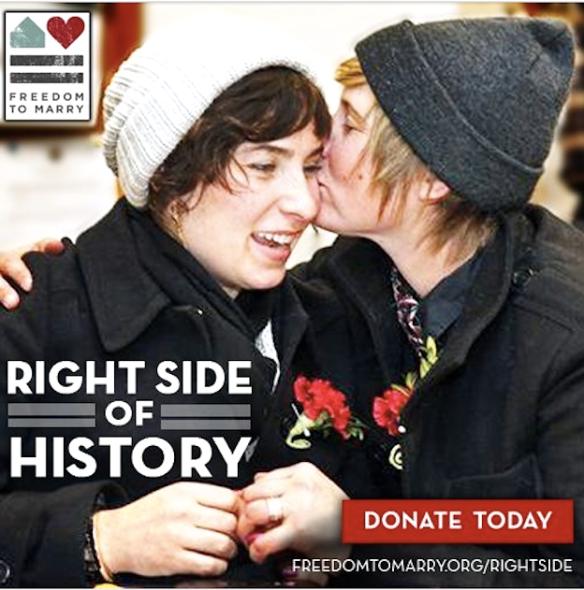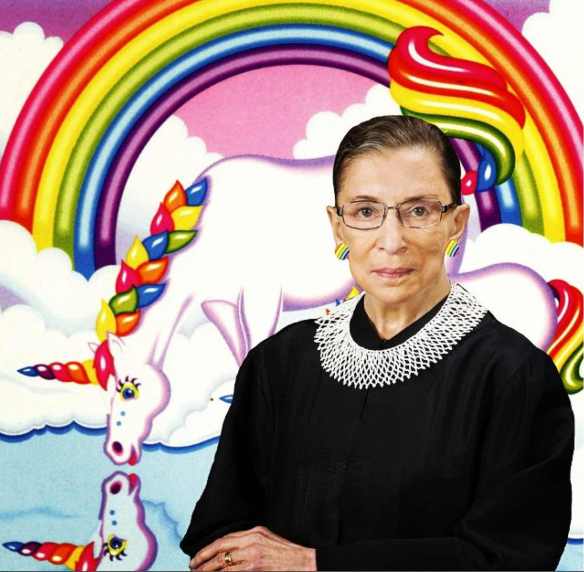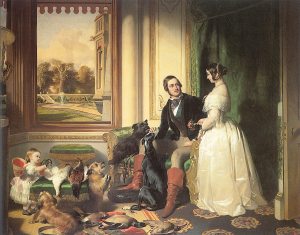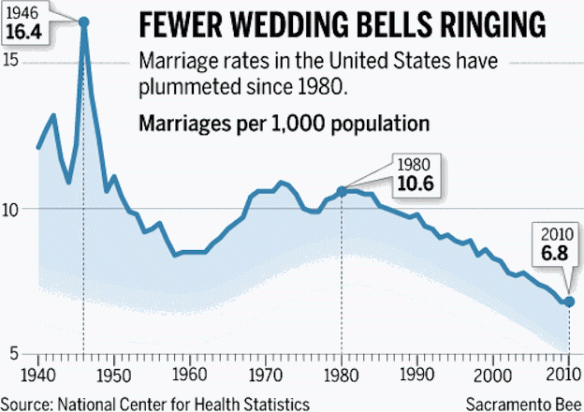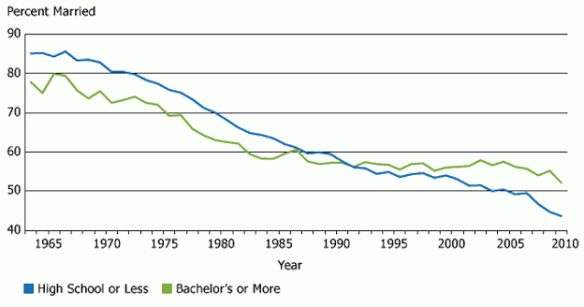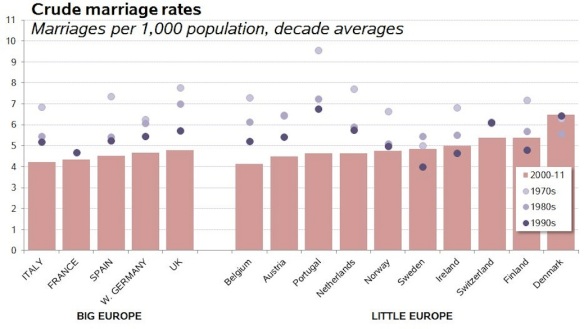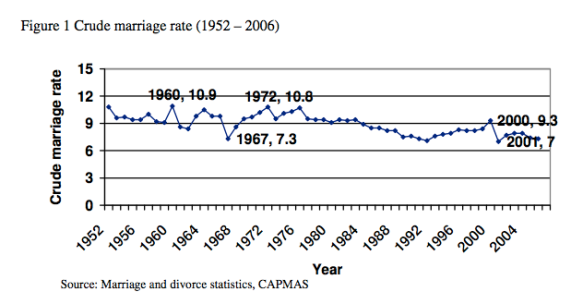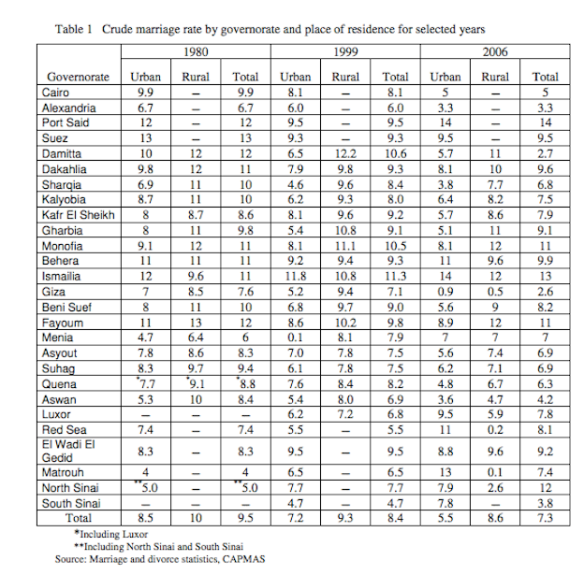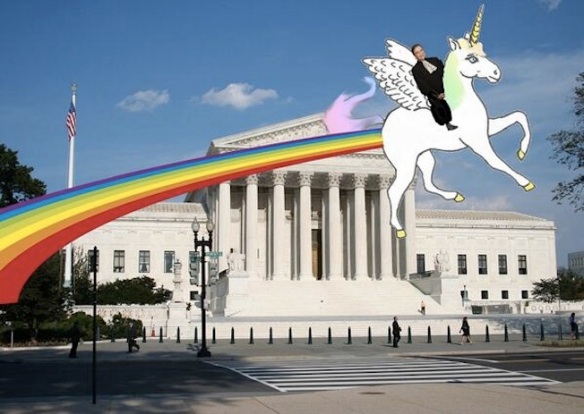An explanatory note
In June SPW has circulated information on the US Supreme Court decision on same-sex marriage but we have not substantially commented this outcome. Concurrently we have published commentaries on same-sex legal reform in Ireland and the decision of the Mexican Supreme Court on marriage equality across the country. Now we recommend the reading of Jill Lepore article To have and to hold: Reproduction, marriage and the Constitution, published by the New Yorker (May 25th, 2015) and, most principally, Scott Long extensive and insightful analysis of the premisses on which the US Supreme decision that we are re-publishing as one major contribution to the ‘from within’ to the global debate on marriage equality.
The dignity of marriage: Gays on the wrong side of history
By Scott Long
I. Tears
Of course I cried. I cried because these nine antiquarian arbiters in funeral garb – five of them anyway, each looking about as forward-thinking and progressive as a constipated grandparent – informed me at last that I am part of this Great Community they help to govern. I cried too for the past, for all those years I never imagined this was possible, as if their words rather than repealing that suffering put it exactly in its place, just so, part of a long injustice necessary in some consoling theodicy so that justice could ultimately be done. I cried because I remembered when Bowers v Hardwick was handed down, 29 years ago. Back then five of the nine said I should go to jail, because “The Constitution does not confer a fundamental right upon homosexuals to engage in sodomy.” It was the last day of June. I spent that Fourth of July holiday holed up in a Cambridge apartment with my queer friend Charlie Fulton, getting drunk all day because we couldn’t tear ourselves from the TV; that was Liberty Weekend, the centenary of that old welcoming statue, and there were fireworks in New York harbor and endless blather about freedom and inclusion and Reagan intoning that “someday every people and every nation of the world will know the blessings of liberty.” Except us.
I cried ten years later when they decided Romer v Evans – “A State cannot so deem a class of persons a stranger to its laws.’ I cried eight years after that when they decided Lawrence v Texas, and told me I didn’t need to go to jail after all. Of course I cried again this time. I cried because I was tired of crying. There had been too many tears.
Too many tears; yet tears are insufficient. Marriage ought to be an adult state. You can’t just think about it from the bruised vantage of’ your youthful alienations. The gay movement in the US makes a massive fetish of childhood: bullied kids, suicidal kids, kids in desperate need of role models. Why? Not just because of others’ terrible stories but because, for lots of us, childhood is where we cried our hardest tears, suffered our deepest wounds. Yet if your wonder years were your worst, it’s because for you, it got better. Those who feel that way are the lucky who emerged alive and prospered; left home, made it to a good school, won a plum job at an NGO or the New York Times, acquired a spouse, kids of their own, a house with a deck, a dog. A rich and happy adulthood sets you apart from the unprivileged whose losses persisted longer: those in jail for sex work or in immigration detention, those rejected by landlords or lovers or their own children, those who can’t get a job or health insurance, those who die young – younger than they ever should, but not young enough to qualify as poster kids, not young enough to have the prized and perfect innocence of childhood.
The week after the Supreme Court decision, the big issue in Gay World wasn’t what we’d fight next – job discrimination? violence? It was a photo of a 10-year-old boy, crying (so the caption said) because “I’m homosexual, and I’m afraid about what my future will be and that people won’t like me.” It went viral after Hillary Clinton herself stepped in to reassure him, on Facebook, ‘Your future is going to be amazing.” This said little about the kid, or Clinton, but lots about American gay men. Their torrent of identification, a flood that obliterated questions (was the photo real? Could a 10-year-old really consent to having it posted?), came because they saw themselves as that vulnerable child, under the cracked shell of adults whose movement had just won a historic triumph. It also revealed a vision of politics. Their president isn’t supposed to be a grownup speaking to grownups, someone you negotiate or argue with; the ideal president is an indulgent parent, patting your head and crooning There, there. Such infantilization not just of selves but of a whole social movement is strange. Why should Frank Bruni, resident gay at the sober New York Times, filter his whole hazy, sentimental reaction to the Supreme Court’s ukase through “one 12-year-old boy” (“He has noticed that his heart beats faster not for girls but for other boys, and the sensation is as lonely and terrifying as it is intense”)?
This is memory politics, Proust mixed uneasily with Martin Luther King. Our rights are about more than our unhappy childhoods. They speak to our maturity, our lives now. Marriage is not just a kiss the State bestows to make it better. We are not wounded children needing solace, but adults whose lives have already taken shape. It’s in the frame of our grown-up decisions and defeats that we must measure what we’ve won, what marriage really means.
II. Recognition
So I turned to the decision itself. What did those nine constipated guardians say to us? When I downloaded Obergefell v Hodges, the first thing that sprang out at me, honest to God, was this footnote:
People may choose to marry or not to marry. The decision to do so does not make one person more “noble” than another. And the suggestion that Americans who choose not to marry are inferior to those who decide to enter such relationships is specious.
That’s a good point, I thought, and wondered how it fit into Justice Kennedy’s argument. Then I realized it was from Clarence Thomas’s dissent — responding to Kennedy’s suggestion “that marriage confers ’nobility’ on individuals.”
To agree with Thomas makes me want to scrub myself. Yet it points to a problem with Kennedy’s writing, variously condemned, even by his supporters, as “gauzy,” “vague,” or “muddled.” His verbiage is a forest seemingly uncharted by any dictionary, where terms like “nobility,” “dignity,” “liberty” roam without the taming governance of definitions. It’s like being in Jurassic Park, with large words lumbering menacingly through the undergrowth; you can take their pictures, but you can’t get close enough to find out what they mean. Non-lawyers, if they like the end result, enjoy the rousing rhetoric. Lawyers, even lefty ones, may secretly sympathize with Justice Scalia, whose scurrilous dissent said of one Kennedy sentence that “The Supreme Court of the United States has descended from the disciplined legal reasoning of John Marshall and Joseph Story to the mystical aphorisms of the fortune cookie.”
Kennedy’s opinions sometimes seem not so much at odds with precedent as at an angle to it. Over the last hundred or so years, American law developed set ways of determining whether unequal treatment is lawful. These are the famous three levels of review: rational basis (for evaluating the intrusiveness of economic regulation, for instance); intermediate scrutiny (for discrimination claims based on gender); strict scrutiny (for claims based on race). In rational-basis review, courts are very deferential to what the state is doing; in higher levels of scrutiny, states need to show they have an “important” or “compelling” interest in classifying people – and they often fail. Kennedy’s decisions on sexual orientation mostly avoid referring to these standards at all. He resembles an autist savant who refuses to use either long division or short division, but solves math problems by staring at his knee. Maybe he’s right, but students learn nothing from the way he got there.
Instead of scrutiny, Kennedy introduces the idea of “animus”: when laws treat people differently based on pure dislike. Any restriction based on animus is impermissible. The problem is, though, that legislators and – especially – lower courts need to fit Kennedy’s precedents, and his language on “animus,” back into the standards of scrutiny they still use to make decisions. Obergefell strongly suggests that sexual-orientation discrimination should receive strict scrutiny, but as Scott Lemieux writes, “Kennedy inexplicably refuses to say so.” His reticence
leaves open the legal possibility that marriage is the only form of discrimination against same-sex people that is covered by the 14th Amendment. But LGBT people face many other types of discrimination – in public accommodations and in employment, for example – that now may have to be fought out case by never-ending case in the lower courts.
It seems improbable that those other discriminations will finally pass muster. But the lawyers who grouse about Kennedy’s vagueness will earn lots of money from the confusion; and the non-lawyers who celebrate should realize this sweeping decision is less sweeping than it could have been.
In fact, I am not sure that Kennedy is muddled. “Animus,” which flowered in Kennedy’s writing before marriage became an issue, nonetheless seems to capture something essential to the marriage struggles, and perhaps to some other contemporary forms of discrimination. If I pass an old-style law that makes it harder for black people to get jobs, it’s clear what I want: for white people to get more jobs. With the rash of anti-marriage amendments, it’s different: no one ever believed that less marriage for the gays would mean more to go around for others. It’s not discrimination that benefits anybody. The aim was solely to say to gays and lesbians, You don’t belong.
In targeting You don’t belong laws, Kennedy is constructing a jurisprudence about dignity and symbolic slights, where the intent of the legislation is crucial. This is a jurisprudence for a politics of recognition, in the terms that Nancy Fraser has made famous. Fraser drew a distinction between two visions of justice, dividing “the forces of progressive politics” into “two camps.” An older vision of “redistribution” draws on “traditions of egalitarian, labor and socialist organizing”; “political actors aligned with this orientation seek a more just allocation of resources and goods.” On the other side, the proponents of “recognition” talk about diversity and difference. They don’t want goods or benefits; they want respect. It’s a politics more attuned to symbolic insult than material inequality. And
the language of distribution is less salient today. … Claims for the recognition of difference now drive many of the world’s social conflicts, from campaigns for national sovereignty and subnational autonomy, to battles around multiculturalism… They have also become predominant within social movements such as feminism, which had previously foregrounded the redistribution of resources. Why do so many movements couch their claims in the idiom of recognition?
Hold that question. Enough for now that Kennedy couches his decision in that idiom: he addresses people who want not resources and benefits, but respect and solace. He largely imagines intangible rewards, hence the cloudy ungraspablity of his nouns; but his arguments are philosophically intelligible even if not always legally clear.
III. Liberty
Liberty is one of Anthony Kennedy’s biggest words. As he pulls out the organ-stops it swells to an anthropological attribute rather than a political value: every person’s ability not just to do things but to decide who they are.
The Constitution promises liberty to all within its reach, a liberty that includes certain specific rights that allow persons, within a lawful realm, to define and express their identity.
(This is the sentence that drew Scalia’s scorn above; but if I found that in my fortune cookie, I’d be happy.) Kennedy’s most important lines, perhaps, are those where he draws an expansive picture of the ways that liberty is implicated in the intimate realm of life:
Like choices concerning contraception, family relationships, procreation, and childrearing, all of which are protected by the Constitution, decisions concerning marriage are among the most intimate that an individual can make.
Elevating autonomy and choice this way is powerful. It underpins what is, for lawyers, probably the most unsettling part of Kennedy’s opinion: his preference for using a substantive due process argument, rather than an equal protection one. Substantive due process is one of the most controversial doctrines in American law. It is an interpretation of the Fourteenth Amendment that conservatives and liberals alike have used to identify rights — “liberties” — not specifically enumerated in the Constitution. For Kennedy, the liberty to marry is one of of these. The framers didn’t mention it; but surely it must be in our founding document, mute yet essential. Whereas an equal protection argument contends the state should treat everyone equally — if some can marry, all should be able to — a substantive due process approach holds, with different emphasis, that marriage is so silently fundamental no one should be denied it. Equal protection would allow a government, in principle, to deny marriage equally to everybody across the board. But if marriage is a substantive due process right, it’s inescapable: states must let people marry. Lots of lawyers mistrust this sleight of hand and the stealth freedoms it uncovers. But it’s quite consistent with Kennedy’s belief that what’s at stake in same-sex marriage – and in LGBT rights in general – is less protecting equality than respecting every person’s decision-making power.
It’s this way of conceiving liberty that Clarence Thomas despises. He returns to old sources to assert a minimalist liberty as simple “freedom from physical restraint.” In its narrowest sense – he’s citing Blackstone here –
“liberty” most likely refers to “the power of loco-motion, of changing situation, or removing one’s person to whatsoever place one’s own inclination may direct; without imprisonment or restraint, unless by due course of law.”
“Or” – he’s in the library again – “as one scholar put it in 1776, “[T]he common idea of liberty is merely negative.” In the marriage cases, nobody kept anybody from going anywhere. “Petitioners cannot claim, under the most plausible definition of ‘liberty,’ that they have been imprisoned or physically restrained.” Nothing to see here; move along.
This is, in fact, a very old dispute. Thomas’ cantankerousness clarifies what Kennedy is talking about. Thomas defends negative liberty, as Isaiah Berlin classically defined it: “By being free in this sense I mean not being interfered with by others. “ A long philosophical tradition distinguishes this from positive liberty, which conveys not only absence of restraint but the capacity for action, the possession of personal power. Berlin wrote:
The “positive” sense of the word “liberty” derives from the wish on the part of the individual to be his own master. I wish my decisions to depend on myself, not on external forces of whatever kind. … I wish to be a subject, not an object; to be moved by reasons, by conscious purposes, which are my own, not by causes which affect me, as it were, from outside. I wish to be a doer – deciding, not being decided for, self-directed and not acted upon by external nature or by other men.
The two definitions can shade into one another, but they are different. In the one, liberty is solitude; in the other it is sovereignty. In the frame of European history, negative liberty is the freedom of the freed serf or the masterless man, no longer tied to the land. Positive liberty is the freedom of the master, endowed with authority and means to work his will in the world.
Kennedy is emphatically a partisan of positive liberty. His arguments draw strength from its strengths: its concern, for instance, for what governments and societies must do to enable independent and competent choices. His opinions are also endangered by its weaknesses. Isaiah Berlin has traced better than any other thinker the paradoxes of positive liberty: the way its exaltation of human capacities can turn into a proscriptive mandate that those capacities be properly used.
Negative liberty draws a veil over what you do with your freedom; it leaves you alone, and it’s unconcerned about the consequences as long as you leave others alone too. Positive liberty, though, closes no curtains. It presupposes that, given freedom, you will act. The question of how, of what uses you propose for this enabled freedom, becomes urgent. Left to themselves, humans will do and choose different things. Yet this offends against a belief that both values and society should be rational. Shouldn’t real self-mastery, sovereignty over the self, be the discipline of choosing the right thing, not the wrong?
Positive liberty tends to collapses into monism, as Berlin says, “the faith in a single criterion”: the belief there is one overriding value people ought to be pursuing, one that redeems their power to choose by its syllogistic superiority as a choice. In this vision
the rational ends of our “true” natures must coincide, or be made to coincide, however, violently our poor, ignorant, desire-ridden, passionate, empirical selves may cry out against this process … Kant tells us that when “the individual has entirely abandoned his wild, lawless freedom, to find it again, unimpaired, in a state of dependence according to law,”’ that alone is true freedom, “for this dependence is the work of my own will acting as a lawgiver.” Liberty, so far from being incompatible with authority, becomes virtually identical with it.
That way lies “the vivisection of human societies into some fixed pattern dictated by our fallible understanding of a largely imaginary past or a wholly imaginary future.”
If Kennedy’s understanding of liberty risks sanctifying certain choices over others, it is a fortuity perhaps increased by his use of substantive due process. One reading of substantive due process doctrine is that if certain rights didn’t actually get enumerated in the Constitution, it must be because they were so fundamental and obvious that the framers saw no need to mention them. Kennedy comes very close to saying this about marriage. If a right is that basic to being American, or human, then woe betide anyone who doesn’t use it.
How much does Kennedy’s idea of liberty remain neutral about the values people choose? How much does it regress into the faith that “All values can be graded on one scale, so that it is a mere matter of inspection to determine the highest” – and that true liberty consists in choosing the highest?
IV. Dignity
Dignity is another of Kennedy’s grandest words, and nowhere more than in deciding whether the government will give gays “the basic dignity of recognizing” their marriages. For Kennedy, the greatest injustice lesbians and gays have suffered is a continuous insult to their human dignity. Over generations, he writes,
many persons did not deem homosexuals to have dignity in their own distinct identity. A truthful declaration by same-sex couples of what was in their hearts had to remain unspoken. Even when a greater awareness of the humanity and integrity of homosexual persons came in the period after World War II, the argument that gays and lesbians had a just claim to dignity was in conflict with both law and widespread social conventions.
And dignity is especially at stake in the state’s regulation of couples, for “There is dignity in the bond between two men or two women who seek to marry and in their autonomy to make such profound choices.”
Dignity is also another word Kennedy abjures defining. Nor is it a clear term of art in US jurisprudence, though Kenji Yoshino finds that the Supreme Court has used it in more than 900 opinions, and that — predictably, in an age of recognition — “its use of the word has increased.” Kennedy is “particularly drawn to it,” Yoshino writes. “When Justice Kennedy ascribes dignity to an entity, that entity generally prevails.”
Yet, as Leslie Meltzer Henry observes, for a word so often bandied about in constitutional law, “its importance, meaning, and function are commonly presupposed but rarely articulated.” Henry considers its legal uses diverse, flexible, “dynamic and context-driven.” This is a way of saying “vague.” The vagueness allows Clarence Thomas to claim that Kennedy sees dignity solely as something the government gives you. Maintaining to the contrary that dignity is innate, Thomas heads into an already notorious peroration:
[H]uman dignity cannot be taken away by the government. Slaves did not lose their dignity (any more than they lost their humanity) because the government allowed them to be enslaved. … The government cannot bestow dignity, and it cannot take it away.
Kennedy’s own idea of dignity is in fact evident enough, and stands on firmer philosophical ground than Thomas. He doesn’t see it as a state endowment, but neither does he treat it as some mystic quiddity or innere Emigration that even slavery can’t strip away. Dignity is closely connected with his philosophy of liberty as choice. The question is whether it’s threatened by the same dangers: whether his reliance on the word and concept risks undermining the legal framework of freedom he is trying to advance.
Some potted history here is useful. “Dignity” comes from the Latin dignitas, itself derived from the noun decus, which means honor, glory, or distinction — and also ornament, as in medal or decoration. Another of its descendants in English is “decent.” In Latin, writes Mette Lebech, dignitas was a function of one’s status:
In the Roman Republic as well as in the succeeding Empire, Dignitas was the standing of the one who commanded respect, whether because of his political, military or administrative achievements.
To Rome, dignity marked out difference within a hierarchy, and this remained its core meaning through the Middle Ages. The notion of dignity as a quality of all humans, detached from any particular class or role, only fully emerged in the Renaissance. Its most eloquent articulation was by the 15th-century philosopher Pico della Mirandola, in his immensely famous oration On the Dignity of Man. Dignity lay in the universal human capacity to choose and change, to decide about yourself, to shift your very status on the great Chain of Being:
The happiness of man! To man it is allowed to be whatever he chooses to be! As soon as an animal is born, it brings out of its mother’s womb all that it will ever possess. … [But to] Man, when he entered life, the Father gave the seeds of every kind and every way of life possible. He fashions and transforms himself into any fleshly form and assumes the character of any creature whatsoever.
Clearly this is ancestral to how Kennedy regards dignity; and it also suggests how he links dignity to liberty. For Kennedy, liberty includes being able to choose who we are or will become, shaping our identities rather than just taking what’s given. Dignity comes when these choices can be acted on, witnessed, and recognized. This is an understanding of human dignity employed by philosophers to the present day. I often cite Tzvetan Todorov’s remarkable study of moral life in Hitler’s concentration camps; he sees dignity as the capacity to “act out the strength of one’s own will, to exert through one’s initiative some influence, however minimal, on one’s surroundings. … It is not enough simply to decide to acquire dignity: that decision must give rise to an act that is visible to others (even if they are not actually there to see it).” The univers concentrationnaire was geared and calibrated to destroy this capacity. To decide and to act on a decision in the camps often meant: to decide to die. Yet for many, preserving some small area where dignified action was possible gave life its only meaning. For some, their last act of dignity was the only one by which they would be remembered.
In Kennedy’s marriage opinion, though, dignity plays a peculiar role. “The right to personal choice regarding marriage is inherent in the concept of individual autonomy,” he writes. But he doesn’t stop there. The “choice regarding marriage” isn’t neutral. The “centrality of marriage to the human condition” makes it far more than just an option. The dignity of marriage seems not to open possibilities, but to dictate one above all.
The prose is full of fulsome praise for people who decide one way rather than the other. “No union is more profound than marriage, for it embodies the highest ideals of love, fidelity, devotion, sacrifice, and family. In forming a marital union, two people become something greater than once they were.” Indeed, marrying boosts your dignity: “The lifelong union of a man and a woman always has promised nobility and dignity to all persons, without regard to their station in life.”
From their beginning to their most recent page, the annals of human history reveal the transcendent importance of marriage. … Marriage is sacred to those who live by their religions and offers unique fulfillment to those who find meaning in the secular realm. Its dynamic allows two people to find a life that could not be found alone … Rising from the most basic human needs, marriage is essential to our most profound hopes and aspirations.
And so on. It’s like Sondheim’s Company sung by the Mormon Tabernacle Choir. With all this noise, how can any dignified person decide against marrying?
“Being Alive” from Company, sung by Anthony Kennedy and the Supremes
One can see in the contrast with reproductive rights how heavily weighted a choice marriage is to Kennedy. He calls decisions about contraception and procreation “among the most intimate that an individual can make,” and “protected by the Constitution.” These words posit procreating and not-procreating as equivalent, neutral choices, veiled by their intimacy and importance from legal and moral valuation. Indeed, the right to contraception was only established in American law through long struggles asserting it was not less dignified, not less moral or proper, than becoming pregnant. But Kennedy offers no equivalent opposite to choosing marriage. He wastes no words praising the dignity of the single life. Not to elect marriage, he says, is “to be condemned to live in loneliness, excluded from one of civilization’s oldest institutions.”
Kennedy and the concepts he uses are divided, torn. His idea of liberty as self-determination collapses back toward the belief that some decisions are better than others, because they show the self’s mastery over what is irrational and wrong. His idea of dignity is the means for the implosion: it folds inadvertently into an older sense that some life-ways are superior in their rationality and rightfulness. Dignity-as-choice melts back into dignity-as-distinction. Kennedy obfuscates the difference while keeping them shoehorned in the same word.
And this again raises the question: does the dignity Kennedy reads in marriage reflect what it means to you, to me, to the society he writes for?
V. The Wrong Side of History
Kennedy talks about liberty and choice; but backhandedly he introduces the idea that some choices are better, more dignified, more “transcendent” than others. His libertarian language jars gratingly with a uncritical and coercive adulation of one particular life decision, marriage.
Frustrating Kennedy’s incoherence may be, but it isn’t accidental. It inheres in the philosophical roots of his terminology. His idea of “liberty” is historically prone to elevating certain uses of freedom above others. Above all, though, Kennedy’s legacy is a jurisprudence of recognition. “Dignity” is essential to it; the injustices he finds especially intolerable, the animus-driven laws he condemns, deny the desires of people to be recognized in their dignity, with the identities and lives they’ve made. Dignity entails decision-making power for Kennedy. But an older, hierarchical implication keeps peeping through. And when attached to marriage the word turns invidious, augmenting the dignity of some – while leaving other choices, other relationships, rhetorically in the ditch.
The twinned themes of dignity and recognition have, through marriage, become integral to gay politics. In the US as in other countries, the whole campaign for marriage has revolved round recognition, the affirmation of dignity rather than the allocation of benefits. The financial and material aspects of marriage might be crucial to actual people, and were sometimes vital to litigation (inheritance-tax rights, for instance, were central to the 2013 Windsor decision), but were downplayed by general agreement throughout the struggle, in favor of a greeting-card emphasis on “love” and its starved aspiration for due respect. Other LGBT needs that had clear material implications or implied redistributing goods or services (employment protections, or housing rights, or palpable and particular rights of citizenship like having your ID reflect who you are) were told to wait, while a goal constructed in symbolic and immaterial terms moved to the head of the line.
This preference for symbolism is pervasive in gay life now; it shows even in small ways. It’s fascinating that the gays go gaga over Ruth Bader Ginsberg, a judge of great intellectual power but one who has largely ceded the field of sexual orientation to Justice Kennedy. It’s because, unlike Kennedy (taciturn, undemonstrative, and unfriendly to unicorns), when she leaves the courtroom she says nice things about them, and even presides over same-sex weddings. She offers recognition, which is even more important somehow than tangible victories on the bench.
I’m not so much criticizing this strategy as asking what happens next. People are already hawking their ideas for “new priorities” for the US LGBT movement (though some precipitately want to shut it down completely); but there’s little discussion about how you can wrench it back to a focus on material goals, when the whole movement has gone off in pursuit of the ghostly allurements of symbolic affirmation. And there’s little concern that “dignity” too can be a zero-sum game, with denigration as its reverse side. The respect your decisions gain can tacitly deepen disrespect for others’.
Kennedy’s inflation of marriage into a “transcendent” choice is already echoing. It gives rise to a sudden burst of judgmental Comstockery among gay people, as though a little government attention turned them all into Southern Baptist preachers (hypocrisy included). Take, for instance, this month’s reactions to the word that the black sheep of the Palin clan was pregnant again “out of wedlock.” The gays were indignant; their first week into wedlock, and already they think anybody outside it must be a crack whore. I can’t tell you how strange it feels to see this meme all over the Internet – stranger, too, when gay friends who I know have spent their nights on Grindr flaunt it on their Facebook pages:
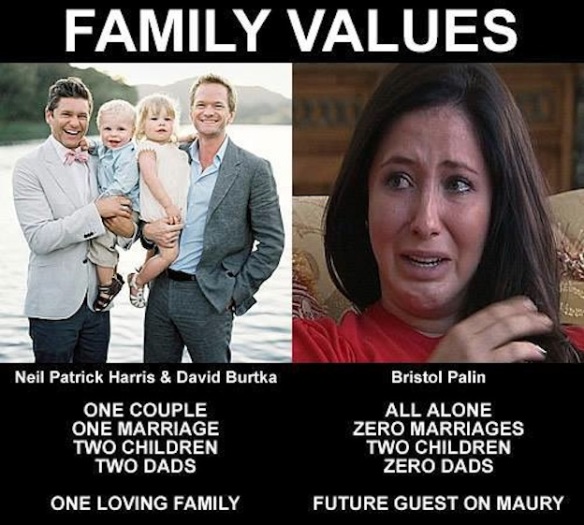 This moralistic misogyny should be beneath the dignity of people who recently suffered from the same censorious opprobrium. I think Neil Patrick Harris is a nice person and Bristol Palin is not. I know, though, that neither their sex lives nor her single status have anything to do with how good they’ll be as parents. And I’m as sure as I am of anything on earth that a human rights movement enlisted in the slut-shaming brigade has nothing, zero, to do with human rights any more.
This moralistic misogyny should be beneath the dignity of people who recently suffered from the same censorious opprobrium. I think Neil Patrick Harris is a nice person and Bristol Palin is not. I know, though, that neither their sex lives nor her single status have anything to do with how good they’ll be as parents. And I’m as sure as I am of anything on earth that a human rights movement enlisted in the slut-shaming brigade has nothing, zero, to do with human rights any more.
If the gays are acting blind as any right-wing pundit, it’s paradoxically the right-wingers who see clearly the multiple ways people define relationships now – even if they only invoke this variety as a drone target for their Jeremiads.
Consider this question: are there legal means by which the state could, and should, recognize relationships with multiple partners? The gays (and many nice, liberal supporters) wax furious if anyone suggests this might be a logical extension of the liberties in marriage: as if, having gone two-by-two into the ark, they want to hoist the gangway and let the three-way perverts drown. What’s astonishing is to see the liberals categorically deny that such relationships exist in modern societies at all. Justice Alito brought it up during the marriage hearing, trying to imagine polygamy in a contemporary context: for instance, “four people, two men and two women — it’s not the sort of polygamous relationship, polygamous marriages that existed in other societies.” The New Yorker was flatly incredulous. Such a family, its reporter wrote, is “one that exists in Alitoland” alone.
I didn’t know I lived in Alitoland. But I do know many households like the ones Alito described: the lesbian who’s bought a home (and is bringing up a child) with her current lover, her former lover, and her current lover’s former lover; the trans man – prim as your favorite uncle – who’s raised his kids with his two cis female partners; the husband who lives with his wife and his wife’s lesbian mate. You can perfectly well say these aren’t common, but you won’t know, because these arrangements tend not to turn up on census forms. It’s a strange world when a George-W.-Bush-appointed Supreme Court justice may be more in touch than the New Yorker with the way people live now.
Kennedy’s opinion, in fact, doesn’t even reflect the diversity of life choices on the Supreme Court. The pitiable, sad unmarried people whom he calls “condemned to loneliness” include two of the four justices who voted with him. A colleague of mine wonders what they really thought about this language. Probably they see it as what Scalia called “the price of a fifth vote.” I wonder rather more what Kennedy really thinks as he looks at them.
And this is what disappoints about Kennedy’s words, and the exultation greeting them. They misunderstand radically what marriage actually means in the modern world, and what made its expansion possible. Marriage has not opened to lesbian and gay couples because it is “profound” or “transcendent.” It expanded because it isn’t that any more. The marriage decision is possible because marriage means less to us, because the last scraps of its exclusionary dignity are disappearing. Marriage is becoming simply one choice among others; the rhetoric trying to reclaim its sanctity is on the wrong side of history.
Graphs show this better than prose can. Worldwide, fewer and fewer are making that transcendent choice.
The plunge among young US adults (aged 25-34) has been particularly steady:
Statistics across Europe show the same trend.
It’s not just the decaying West. What’s striking is that in another country I know well, highly traditional Egypt, the rate has also fallen. The decline was less stark and steady, but the marriage rate dropped from 10.8 per 1000 population in 1952, to 7.3 in 2006.
But the fall has been more dramatic in Egypt’s two richest urban areas; in Alexandria, the figures sank to half the overall US rate. Evidently people’s economic and social independence plays a crucial role. (The customary Egyptian explanation for the decline is that economic hardships make men reluctant to marry. For a century, in fact, Cairene intellectuals have been warning about a “marriage crisis” caused by men’s ever-direr financial powerlessness. Statistics suggest otherwise. Recent rises in Egypt’s marriage rate — a 2.7% increase in 2012, for instance — coincided with severe economic dislocation. It seems plausible that some want to postpone or avoid marriage as long as they can afford their independence, and turn to its strictures as a shelter only in hard times. When they can, they choose to be single.)
There are as many explanations for all this as there are ideologies. Right now it’s the consequences I care about. Marriage is no longer an inescapable value. It’s been demystified: an option, not an obligation. The sense that it is a choice is precisely what created the pressure to allow others to choose it. The gays were on the right side of this historical process, in demanding that marriage be expanded; they surfed the graphs I’ve shown. The broadening of choice is something to rejoice in. But to continue treating marriage as a transcendent value rather than a contingent possibility is to stand on the wrong side.
People today are choosing and living in many kinds of relationships of care — and building new ones. The law’s challenge is to find how to recognize and protect these, because the law’s job is to look after the ways people actually live. Hieratic talk about the primacy of two-person marriage may postpone this, but can’t avoid the need. In the last decade a few documents outlined vast gaps in what the law recognizes: a detailed Law Commission of Canada report, Beyond Conjugality; and a manifesto by US activists, Beyond Marriage. The latter listed some of the “other kinds of kinship relationship, households, and families” that need protection: among them,
- Senior citizens living together, serving as each otherʼs caregivers, partners, and/or constructed families;
- Committed households in which there is more than one conjugal partner;
- Single parent households;
- Extended families (especially in particular immigrant populations) living under one roof, whose members care for one another;
- Queer couples who decide to jointly create and raise a child with another queer person or couple, in two households;
- Close friends and siblings who live together in long-term, committed, non-conjugal relationships, serving as each otherʼs primary support and caregivers;
- Care-giving and partnership relationships that have been developed to provide support systems to those living with HIV/AIDS.
Many today may want to raise their children in a community of shared responsibilities rather than a nuclear household. Many today may want decisions about their health or death made within a circle of friends, not by a single partner. Accommodating this in law is an immanent, not a transcendent necessity.
When I call the loss of marriage’s transcendence historically irreversible, I mean that in a democratic world transcendence itself cannot be sustained. It’s curious that the donnish, tweedy Isaiah Berlin should have expounded this postmodern insight with such urgency. The philosopher John Gray summarizes what Berlin saw: that ultimate values
are many, they often come into conflict with one another and are uncombinable in a single human being or a single society, and that in many of such conflicts there is no overarching standard whereby the competing claims of such ultimate values are rationally arbitrable. Conflicts among such values are among incommensurables, and the choices we make among them are radical and tragic choices. There is, then, no summum bonum or logos, no Aristotelian mean or Platonic form of the good, no perfect form of human life, which we may never achieve but towards which we struggle, no measuring rod on which different forms of human life encompassing different and uncombinable goods can be ranked.
Gray writes that this “strikes a death-blow to the central, classical, Western tradition,” with its belief that all positive values are rationally consistent – “and, it must be added, to the project of the Enlightenment.” That may be too much. Yet to recognize the pluralism of values is to realize in the most rendingly personal way that we live in a disenchanted world. No one hands us final answers. There is no “most profound” or “highest” life-way. Some people choose the vita activa, some the vita contemplativa. Some discover more purpose in public life than private life; to some, a tennis match matters more than a job promotion. Some people locate the highest value in a single uxorious relationship, some in the migratory ecstasies of sex; some will find the value of sex in mystical union, some in its market price. For some, love is the true meaning of marriage. For some, it’s taxes.
Berlin wrote:
It may be that the idea of freedom to choose ends without claiming eternal validity for them, and the pluralism of values connected with this, is only the late fruit of our declining capitalist civilization: an idea which remote ages and primitive societies have not recognized, and one which posterity will regard with curiosity, even sympathy, but little comprehension. This may be so; but no skeptical conclusions seem to me to follow. … Indeed, our very desire for guarantees that our values are eternal and secured in some objective heaven is perhaps only a craving for the certainties of childhood or the absolute values of our primitive past. … To demand [such guarantees] is perhaps a deep and incurable metaphysical need; but to allow such a need to determine one’s practice is a symptom of an equally deep, and more dangerous, moral and political immaturity.
That rebuke to our childishness is the truth we need.
Source: http://paper-bird.net/2015/07/14/the-dignity-of-marriage/


